Basics of Pay Per Click Marketing
Okay, now that you are here, I would like to make a fair assumption that you are either someone who is interested in search engine and internet marketing or you are a business owner with a newly established digital portal who is looking forward to creating a strong online presence for his products or services.
Whichever the case, it is reasonable to deduce that you know Pay Per Click (PPC) marketing is a digital marketing strategy used to generate traffic on your website. But, you may not be sure as to what it is or why and how it works. As this article aims to address the basics of a PPC marketing strategy, I would try to answer this question as simply and as concisely as I can.
What is Pay Per Click or PPC marketing?
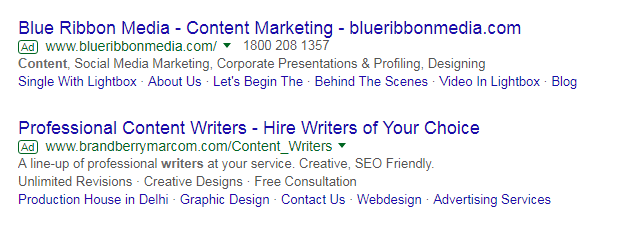
This is a PPC ad on Google
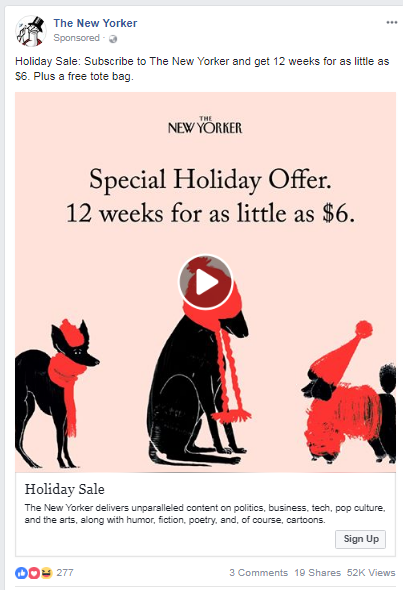
This is what a PPC ad may look like on Facebook
The name is self-explanatory. Pay Per Click marketing is an internet marketing strategy which works on an expense per traction basis. This means you need to pay only after someone has clicked on your advertisement which is displayed on a search engine (Google, Yahoo or Bing) or a social media platform (Facebook, Instagram or Twitter).
Sounds awesome, right? After all, which traditional form of advertising lets you do that? You certainly don’t pay for a newspaper advertisement after the reader has inquired about your product. Display ads similar to ones in the newspaper are called Pay Per Impression ads. A PPM ad charges you according to the number of impressions that your ad attracts during the period of its existence.
Then, how can Pay Per Click ads enable you to pay only when someone clicks on them? What is their working module and how can a PPC campaign be executed? Read on.
So, how does Google PPC online advertising work?
After all that build-up, we are pretty sure you are quite curious as to the execution of a Pay Per Click strategy. But, before we begin on the journey of a Google PPC online advertising campaign, let’s get the comprehension of a few basic terms out of the way:
| Keywords: The phrase keyword can have different connotations for different types of marketing strategies. In the case of a PPC campaign, keywords are phrases or words that users most commonly search, in context of your services, on Google and Bing. These phrases should align precisely with the words used for your PPC display ads.
For example: If you own an insurance website and want to run a PPC campaign to increase your web traffic, you can use words such as: ‘insurance provider,’ ‘life insurance’ or ‘auto insurance,’ depending on the scope of your services and competitiveness of that particular industrial sector, as keywords for your Pay Per Click campaign. |
| Google Adwords:Google Adwords is Google’s elite, advertisement service where users bid on specific keywords for a Google PPC online advertising campaign. You can refer to our guide on Google Adwords to get more clarity regarding this service and its utility. |
| CPC:Cost Per Click is the cost incurred by a marketer each time a visitor is guided to his website through a PPC ad. This cost alters based on a variety of factors including the competitiveness of the keyword and the quality of your landing pages. |
| CPM:Cost Per Impression is the cost incurred for each 1000 impressions attracted by your PPC display advertisement. |
The execution of a PPC advertising campaign is homologous across most digital platforms including Google, Bing, Facebook and Twitter. The salient steps included in the execution of this strategy include:
1. Selection and crafting of keyword groups
This is a key step that determines the success of your Pay Per Click marketing campaign. Your keyword selection needs to be comprehensive, conscientious and consistent. The keywords that you want to target with your PPC ad need to be extremely relevant to your business, inclusive of long-tail phrases and concise. Including keywords that have no direct correlation with your services or are not carefully selected may lead to unnecessary or excessive expenditure and the campaign may not deliver as projected.
2. Determination of your ad rank
Once you have created your ad groups, the keyword which is most relevant to your services is selected by Google or Facebook and entered into an auction. The bid that you enter for this auction can either be defined independently or can be entered according to the suggestions provided by Google Adwords.
Based on a variety of factors such as your CPC bid and the quality of your landing page, your ad rank is determined by the search engine or the social media platform. Your ad rank defines the virality of your display ad. Virality in this context means the frequency with which your ad is displayed each time someone searches the keyword linked to your website.
3. Creation of your display ad copy
Creating a compelling Pay Per Click display ad is as much art as it is science. The copy needs to be short, easy to understand and inclusive of relevant keywords. But, it also needs to be evocative and legitimate. Using too many Call To Actions or language which is hard to comprehend not only makes your ad irrelevant but also impacts the reputation of your brand.
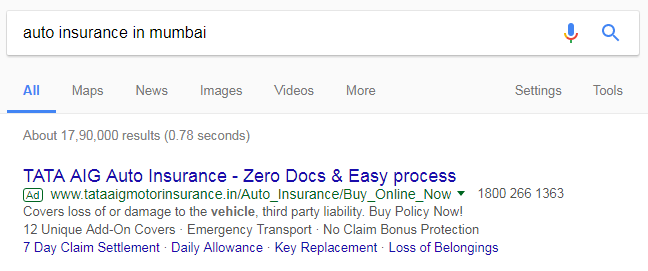
Example of an interesting PPC display ad
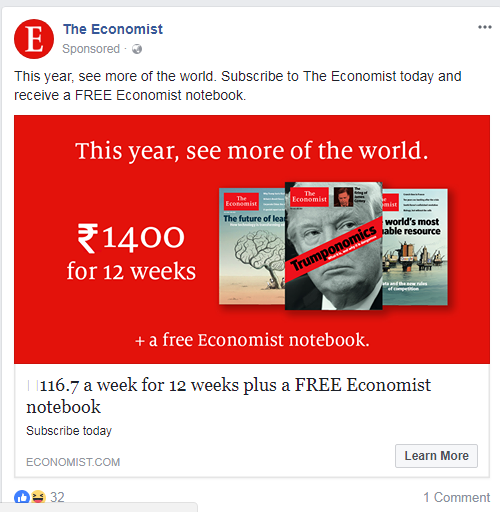
Example of an interesting PPC ad
Why does your business need a PPC marketing strategy?
There are two answers to this question:
1. You need tangible results, here and now
I know what you are thinking, who doesn’t need results effective immediately? But, bear with me through this explanation. PPC marketing, by its very nature is up-to-the-minute and transient. The keywords that work today may not be as relevant tomorrow and what cost per click parameters define your Pay Per Click marketing budget today might be completely different after a very short span of time.
This is a major reason why many marketers view it as a prompt, result-oriented advertising strategy. The Return on Investment for a well collated and precisely executed Google Pay Per Click (PPC) online advertising campaign is immediate, evident and highly specific. It may not endure in the memory for a very long time, but it definitely gets the job done.
2. Your Search Engine Optimization strategy has left something to be desired
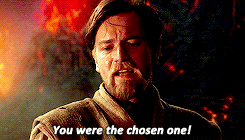
No, no. You don’t need to feel like this.
Source: Giphy.com
Don’t get me wrong. I hereby solemnly pledge that there is no substitute for a driven, consistent and synchronized Search Engine Optimization (SEO) strategy. It is the only thing that will get your website to rank organically on search engines like Google, Bing and Yahoo and keep it there.
But, an SEO strategy is complicated and demanding. It requires continuous content updating based on exhaustive data analysis and its execution is best left to content marketers and SEO experts. Hence, most individuals new to the arena of internet marketing are unable to get substantial and constant results from a basic SEO strategy. Google PPC online advertising to the rescue. A cleverly implemented PPC plan can not only boost your web traffic considerably but can also establish a more viable presence for your brand online.
So, this was a brief introduction to Pay Per Click marketing and how it can boost your website traffic and SEO rank. If you have any doubts regarding this digital marketing tactic or if your Pay Per Click campaign is not delivering as promised, leave a comment below and we will get back to you at the earliest.








PPC is in demand now and everyone must know the basics of PPC. Thank you for the post because it is in detail and easy to understand. Keep writing.